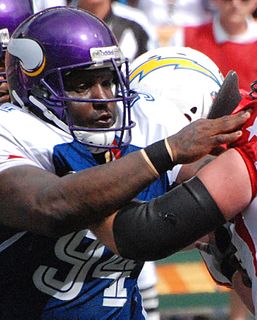A Quote by Dee Dee Myers
There are people in the public sector with a range of experiences that have no equivalent in business, but are essential to governing, like keeping a kid in school or helping someone get and hold a job. The value of those skills can't easily be measured against a bottom line.
Related Quotes
Private sector unionization is down to practically seven percent. Meanwhile the public sector unions have kind of sustained themselves [even] under attack, but in the last few years, there's been a sharp [increase in the] attack on public sector unions, which Barack Obama has participated in, in fact. When you freeze salaries of federal workers, that's equivalent to taxing public sector people.
Business requires an unbelievable level of resilience inside you, the chokehold on the growth of your business is always the leader, it's always your psychology and your skills - 80% psychology, 20% skills. If you don't have the marketing skills, if you don't have the financial-intelligence skills, if you don't have the recruiting skills, it's really hard for you to lead somebody else if you don't have fundamentally those skills. And so my life is about teaching those skills and helping people change the psychology so that they live out of what's possible, instead of out of their fear.
The first step is to measure whatever can easily be measured. This is OK as far as it goes. The second step is to disregard that which can't be easily measured or to give it an arbitrary quantitative value. This is artificial and misleading. The third step is to presume that what can't be measured easily really isn't important. This is blindness. The fourth step is to say that what can't be easily measured really doesn't exist. This is suicide.
I've always learned on-the-job, in real time. A problem comes up; I research it, and try to solve it. You can't study to be an entrepreneur; you have to develop those skills day in day out. All entrepreneurial experiences are related, whether you're selling worm poop to Wal-Mart or a grade tracking application to the public elementary school system. In the end, it's all very similar.
We need an honest bottom line. Today that bottom line is vastly subsidized. If anyone of us were paying the full cost of oil our bottom lines would be very different. If you internalize the cost of oil, look at the cost of the war in the Middle East or the cost of global warming for future generations, if you internalize those external costs and what you pay, that bottom line would look very different, what ever business you are in.
We try to prevent the creation of artificial rents. Rather than setting up quotas to stop imports we levy a tariff, that would be better. Or we pay wages in the public sector which are roughly equivalent to the productivity in the private sector and we don't therefore make it a special benefit to get a bureaucratic position.
The most important job of the entrepreneur begins before there is a business or employees. The job of an entrepreneur is to design a business that can grow, employ many people, add value to its customers, be a responsible corporate citizen, bring prosperity to all those that work on the business, be charitable, and eventually no longer need the entrepreneur. Before there is a business, a successful entrepreneur is designing this type of business in his or her mind's eye. According my rich dad, this is the job of a true entrepreneur.
Well that's a bit of a question like saying, what have you learned in life that would help you lead? My whole life has been learning to lead, from my parents, to my education, to the experience I had in the private sector, to helping run the Olympics, and then of course helping guide a state. Those experiences in totality have given me an understanding of how America works and how the economy works.



































